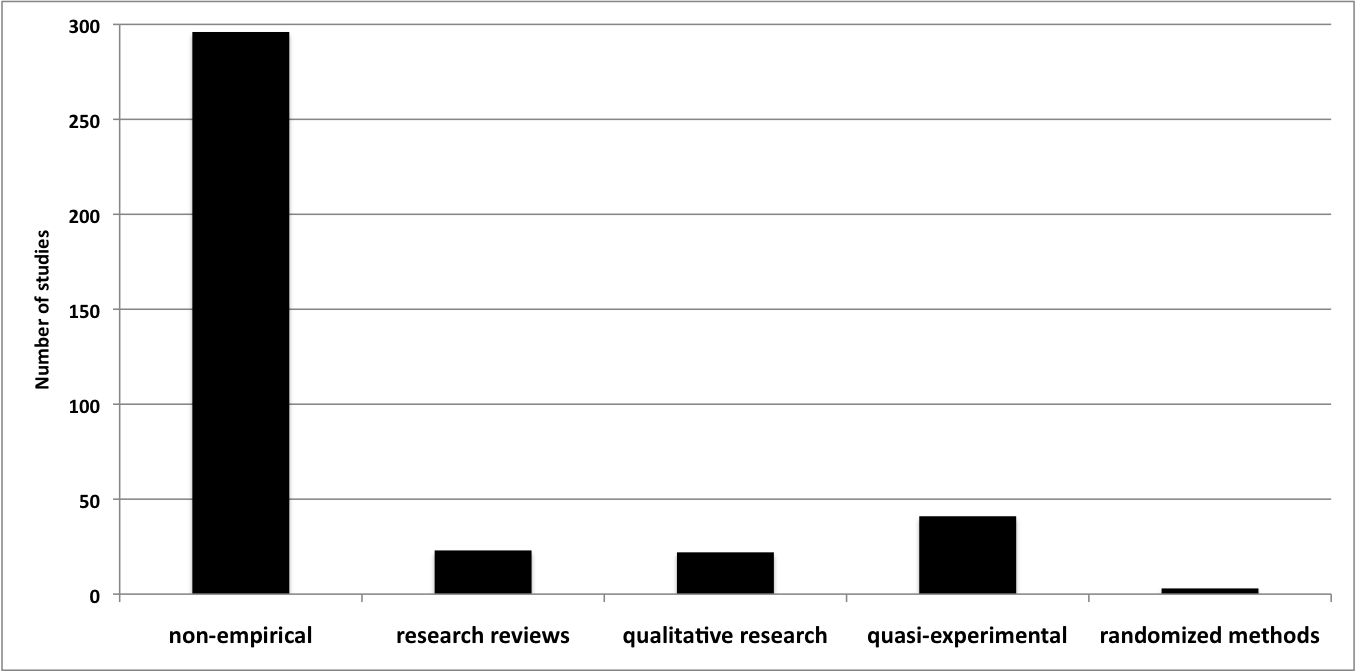What is the status of experimental research on teacher induction?
Why is the question important? Teacher turnover is an enormous cost for education systems, both in terms of student performance and dollars. High turnover results in increased numbers of inexperienced teachers, a loss of trained teachers, and a cost in dollars for recruitment, hiring, and training new teachers. Induction is one strategy that is being implemented to address retention issues. As it is a costly strategy, and the issue is so critical, it is important to understand its effectiveness. It is critical to apply the strength of experimental research to answer these questions.
See further discussion below.

Source: Review of Research on the Impact of Beginning Teacher Induction on Teacher Quality and Retention
Results: This review examined almost 400 studies, and concluded that the vast majority of published research (99%) was non-empirical and/or failed to meet randomized clinical trial standards. Only 3 studies (1%) used randomize methods. Their conclusion: “The dearth of high quality experimental and quasi-experimental research in this area precludes us from pinpointing the most effective induction practices.”
Implications: An enormous amount of resources and effort is being invested in beginning teacher induction with little or no experimental research to identify its effectiveness.
Authors: Alejandra Lopez, et.al.
Publisher: SRI International
Study Description: SRI undertook a thorough review of the empirical evidence on the effectiveness of induction programs. It conducted a search of experimental and quasi-experimental research from 1980 through 2003 using ERIC and other internet search resources. It used a resource developed by the What Works Clearninghouse--"Study Design and Implementation Assssment Device"--to assess the strength of the research designs. It reviewed 387 studies.
Citation: http://policyweb.sri.com/cep/publications/Induction_LitReviewFeb_2004.pdf
